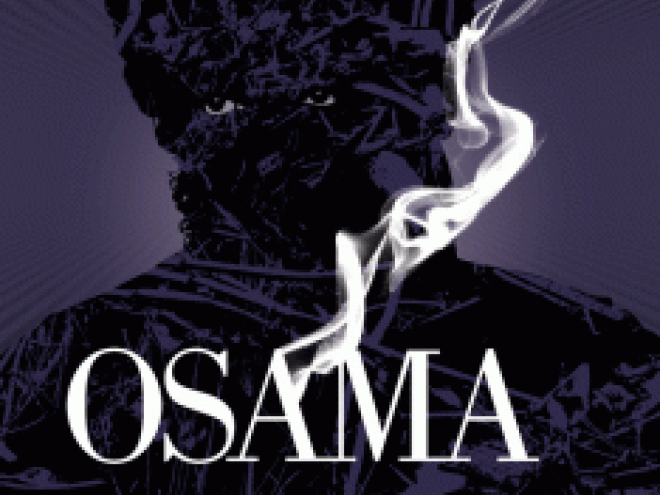Some authors are big on concept; others are big on execution.
Israeli author Lavie Tidhar has the fortuitous ability to hit the sweet spot that encompasses both. In 2012, he won the World Fantasy Award for a book that, by all rights, judges should have avoided: In an alternate world, unplagued by terrorism, a woman searches for a pulp fiction author named Osama bin Laden. His new novel, A Man Lies Dreaming, is an unofficial quasi-followup. I don’t want to give too much away, but the essence of the novel makes it impossible to avoid spoilers, so I’ll do it fast: In an alternate 1939, German Communists kicked out the Fascists, and Adolf Hitler is a private detective in London hired by Jewish gangsters.
Okay. Breathe. Are we good on that point?
Wolf is a down-on-his-luck private eye, an expat German painter who’s landed in London, scraping by and taking any case that comes his way. It’s caustic. It’s risky. The unexpected thing about the book is this: It’s good. It’s damn good. Unflinching in its portrayal, but also troublingly honest in its protagonist’s interior monologue, you get the point
That it’s a book about an alternate history isn’t immediately clear. The laws of the universe are never fully explained. It’s not like the methodical and far-reaching world-building of alternate-Holocaust stories like Michael Chabon’s Yiddish Policemen’s Union or Philip Roth’s The Plot Against America. It isn’t even the off-center focus of the narrative, the way it is in Philip K. Dick’s Man in the High Castle. In Dreaming, Tidhar’s characters exist in their own private underbelly — alternating between the desiccated London alleys inhabited by derelicts and rejects, the place where Wolf (the literal meaning of the name “Adolf”) has landed, post-Germany, and the high-society balls and banquets of the German expatriates.
The story alternates between first- and third-person tellings. In both, the clipped, growling, mad-at-the-Jews, mad-at-the-world rancor that Wolf’s terse prose uses fits both the noir character of the book and the bile that we all associate with the man. The book’s most curious dimension comes in a series of interludes: an account of life in a concentration camp, given by one Shomer Aleichem, a writer, a fantasist, who, if we read it in this way, is telling the rest of the book, enacting the story in his mind, giving his imprisoner and torturer the role of private eye and making his life both exciting and its own kind of a living hell.
And there are gratuitous moments, as any noir must have — the high/low point of a young Jewish society woman seducing Wolf, mounting his face and shouting “Deutschland Uber Alles!” over and over is undoubtedly the apex of both — but all told, the book is a tight, masterful creation, an unexpectedly moving work.
Related Content:





